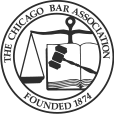
Abuse in nursing homes has become far too common, leaving countless elderly residents suffering from injuries, trauma, and serious illnesses. If you have a loved one that you suspect is a victim of abuse in a nursing home, it's critical that you demand legal action. Sometimes the signs of abuse and neglect are as clear as day. Other times, they're more subtle.
Knowing what signs to look for is the first step to protecting your loved one, and potentially, other residents. The Chicago attorneys at Keating Law Offices, P.C. discuss the most common signs of nursing home abuse and neglect below. Here's what you need to know.
Signs of physical abuse
Physical abuse is just one of the types of abuse seen in nursing homes. Cuts, bruises, and torn clothing may be caused accidentally in everyday life. However, in nursing homes, they can be a sure sign that something isn't right when trained and certified staff and other medical professionals are supposed to be providing a safe environment in which your loved one can thrive. You may also notice that your loved one displays unusual behavior. He or she may not want to be touched or may become anxious in the presence of certain staff members.
Physical abuse is often the result of:
- Sexual assault or rape
- A staff member who becomes angry and violent with residents
- Poor screening of employees (a nursing home may hire an employee with a violent history)
- Poor supervision and lack of protection, leaving residents vulnerable to violence from other residents or visitors
Signs of emotional abuse
Emotional abuse can often be just as traumatic for nursing home residents as physical abuse. While residents don't endure physical injuries, they can endure anxiety, depression, and emotional anguish as a result. Here are some examples of emotional abuse in nursing homes:
- Staff members yell at residents
- Staff members tease, shame, threaten or insult residents
- Requests and needs of residents are purposely ignored
- Residents become isolated from others
- Medications that help regulate emotional and psychological wellbeing are mismanaged or even outright denied
Proving emotional abuse is often difficult, but not impossible. If you suspect that your loved one suffered emotional abuse, our attorneys will get to the bottom of it. For instance, changes in your loved one's mood, crying, suicidal thoughts, or requests for help may be a sign of emotional abuse.
Signs of financial abuse
Nursing home residents are often the most vulnerable to financial abuse. Sometimes, residents are unable to communicate or recognize differences in their assets. Other times staff members take advantage of residents or fail to protect residents from outside perpetrators.
Some of the most common forms of financial abuse we see are:
- Unexplained transactions or withdrawals from a resident's bank account
- Unexplained changes to a resident's will or power of attorney
- Poor living conditions that do not fulfill the contracted services your loved one is paying for
- Fraudulent signatures on bills, checks, and contracts
What should I do if I suspect nursing home abuse?
Few things are more heartbreaking than learning that your loved one suffered abuse in a nursing home. If you notice any of these signs or otherwise suspect that your loved one was abused, trust your gut and take immediate action. You can start by reporting the abuse to law enforcement or the Illinois Department of Public Health (IDPH). Police can conduct an investigation and apprehend criminals and the IDPH can issue fines to the nursing home. These steps are great for the public good, but the police and the IDPH cannot bring personal actions against the nursing home through an individual civil lawsuit.
That's where the attorneys at Keating Law Offices, P.C. come in. We are seasoned attorneys who can investigate the abuse that hurts your loved one and gather evidence to prove it. We work tirelessly to pursue justice and compensation on behalf of our clients. Contact us online or call our Chicago law office to set up your free legal consultation.







